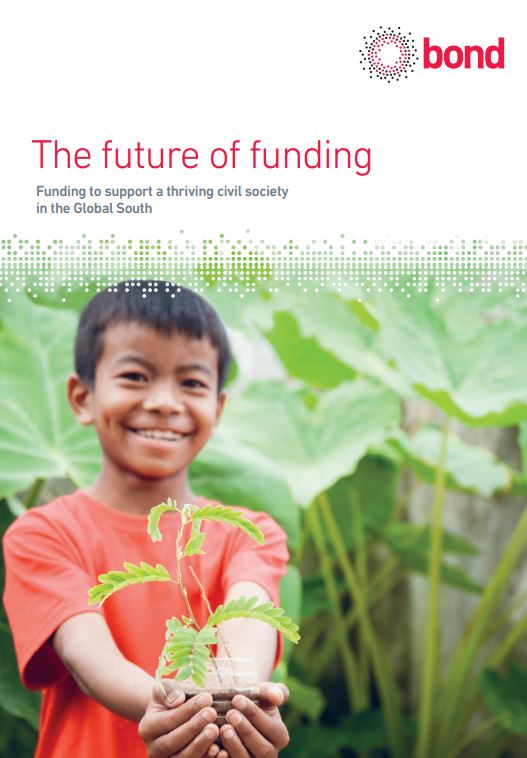A new report published by international development charity Bond offers insights from key players within the British philanthropic space working on international development. ‘The future of funding’ report highlights the various ways funders can support Civil Society Organisations (CSOs) in the so-called ‘Global South’.
 Earlier in 2016, Bond, with Baring Foundation, Big Lottery Fund and Comic Relief and Stars Foundation, hosted the Future Funding Forum, which brought together ideas on producing sustainable solutions to the financial quandaries CSOs in the Global South sometimes find themselves in.
Earlier in 2016, Bond, with Baring Foundation, Big Lottery Fund and Comic Relief and Stars Foundation, hosted the Future Funding Forum, which brought together ideas on producing sustainable solutions to the financial quandaries CSOs in the Global South sometimes find themselves in.
From these discussions, the groups constructed briefing papers, published in the report. These papers highlight the ways in which they see the effective resourcing of Southern CSOs evolving.
Although the briefing papers were contributed by individual organisations, there are connecting threads in their recommendations, such as:
1.) Accountability is a two-way street, with an emphasis on those who are bestowing the aid
It is a common occurrence for accountability to move in an upwards motion from recipients to benefactors. Several of the papers emphasise the need for the people on the ground to have more responsibility for how funds are distributed and that all parties should be involved in the decision making process
2.) A balance is needed between short term results and long-term sustainability
We all know of examples of grantmaking activity where initial results have been celebrated without plans of how the project will develop and be sustained into the future. The papers call for funding based on fixed plans for how to accommodate future sustainability into the original structure of plans. Questions should be raised which ask how local communities are able to sustain projects and take ownership of them as initial successes of the projects are realised.
3.) Invest in the core capacities of southern CSOs
Sometimes the relationship between funder and CSO can end up looking more like that between a contractor and supplier. The limitation of funding means that southern CSOs are often left under-resourced, and unsupported under the weight of the project. The papers suggest more of an emphasis is needed on building local leadership and resilience, using local knowledge to sustain developments.
4.) Address funding criteria that blocks southern ownership
Certain funding criteria can make it difficult for smaller CSOs, such as requiring match-funding, only giving large grants or having complex reporting requirements. Where these criteria aren’t altered, other supporting intermediaries, such as community foundations, are needed to step in and support the CSO.
5.) More can be achieved for CSO with funder collaboration
In the ideal world, the papers suggest, funders would work together and coordinate workflows such as the streamlining of applications, due diligence and CSO reporting. It’s not an abstract ideal, thankfully, but a more efficient way of working would have to be accepted and worked towards by funders, to create a truly effective system for all.
The collaboration between the organisations to create the report is offered as a springboard for others to adapt, change and implement. The report raises questions among the philanthropic community of how those in the Global North better support the Global South, if we are to reach true equality and better strategies for collaboration.
You can read the Bond report here.
For more on the Global South, see Alliance associate editor Andrew Milner’s assessment of the term itself.
For more on community philanthropy, read our special feature here.
Kathryn Murrell is Communications Officer at Alliance magazine.






Comments (1)
Great to see this necessary shift being recognised at long last.